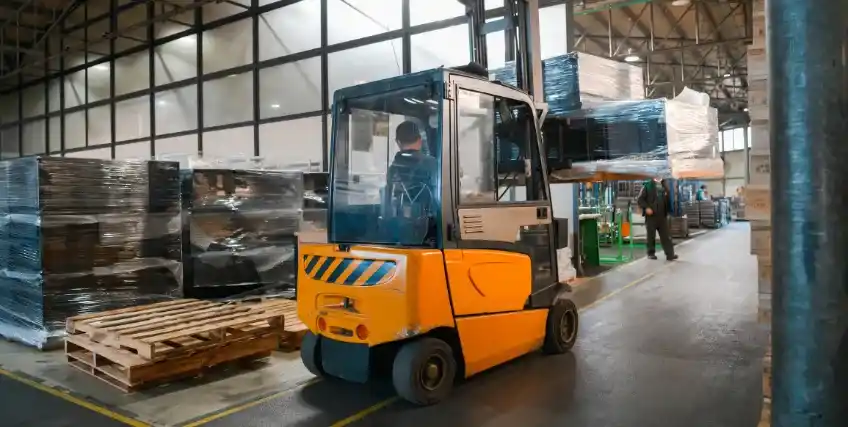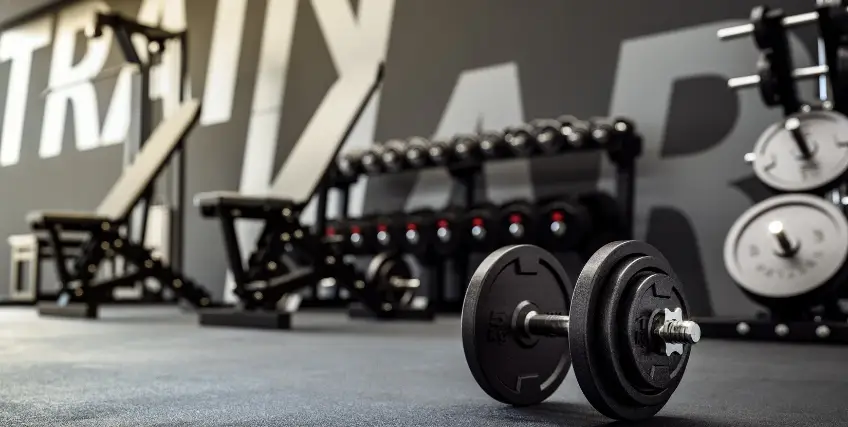Looking for Business Financing?
Apply now for flexible business financing. Biz2Credit offers term loans, revenue-based financing, lines of credit, and commercial real estate loans to qualified businesses.
Set up a Biz2Credit account and apply for business financing.
Key Takeaways
Equipment financing helps small businesses manage equipment purchases without draining working capital.
The right equipment financing company offers clear payment options, fair interest rates, and smooth credit approval.
Comparing equipment financing vs. leasing helps business owners pick the best business financing option based on their goals.
A careful review of lenders, financing programs, and total cost protects business cash flow and long-term profitability.
Every small business depends on reliable business equipment for their operations. Small business owners need strong tools, updated machines, and specialized assets to keep daily operations running smoothly. However, new equipment often comes with a high price tag. Hence, many business owners struggle to pay upfront without draining liquidity or day-to-day business expenses.
Equipment financing steps in as a practical funding solution for business owners. It lets them spread the cost of equipment purchases over time. This loan structure helps protect cash flow and working capital. Also, it makes business expansion possible for startups and other growing firms.
This article explains how small businesses in the United States can choose the right equipment financing company. It also covers cost comparisons, red flags, and mistakes to avoid when choosing the best small business loan lender.
What is Equipment Financing?
Equipment financing is a funding solution that helps small businesses purchase commercial equipment. Here the loan amount covers the full cost of the asset. The business repays through monthly installments that align with its revenue cycle instead of paying upfront for the equipment.
Lenders may base credit approval on the equipment itself. This means, the business asset works as collateral, which lowers risk for equipment financing companies. As a result, this setup helps small businesses qualify more easily, especially compared to unsecured business lines of credit or traditional business loans.
Equipment loans often support a wide range of business needs. These include construction equipment, medical devices, restaurant appliances, IT hardware, renewable energy systems, and more. Since every business sector has its own unique equipment needs, these loans help cover those costs in a manageable way.
Why Choosing the Right Equipment Financing Company Matters
Having a strong financing partner supports more than just equipment purchases for businesses. It also supports growth, asset management, and overall business health. Moreover, a good lender offers flexible financing options, transparent terms, and stable interest rates.
With the right equipment financing company, business owners can choose from multiple financing options, such as equipment leasing, equipment financing, and other hybrid programs. Therefore, this guidance helps them make smart decisions based on their specific needs.
Moreover, working with a reliable equipment financing company also protects profitability. It helps small businesses with fair terms and predictable payment options that allow them to balance expansion with liquidity. Hence, this balance is important for long-term stability.
Factors to Consider When Choosing the Right Equipment Financing Company
It is important to choose the right equipment financing company with strategic planning because it affects your long-term cash flow, equipment purchases, and overall profitability. Business owners need to evaluate a few core factors before deciding. These factors help compare lenders, financing programs, and the true cost of each option. Here are some of the factors to consider when choosing the right equipment financing companies:
Industry Expertise
Total Financing Cost
Flexible Financing
Approval and Speed Process
Range of Financing Solutions
Reputation and Transparency
Impact on Liquidity
End-of-Term Options
Business owners should look for equipment financing companies that understand their types of equipment. For example, construction business owners can look for companies with experience in construction equipment, commercial equipment, or renewable tools. This industry knowledge helps with smoother originations and quicker support.
Many business owners look only at monthly payment options. However, it is better to compare the full cost of the equipment when taking out a loan. Also, check the Annual Percentage Rate (APR), fees, and buyout terms. This helps business owners understand the long-term impact on their cash flow.
The right equipment financing company offers flexible financing programs. These may include seasonal schedules, deferred payments, or options that support working capital. Hence, this flexibility matters especially when revenue changes during busy and slow months.
Quick credit approval can make a huge difference, especially when business owners need new equipment quicky. Therefore, the right equipment financing companies with streamlined digital processes help small businesses move forward without delays. This is often useful for startup owners who are acquiring business equipment for the first time.
The right equipment provider offers multiple financing solutions such as equipment loans, business lines of credit, and equipment leasing. With these many options to choose from, business owners can select the financing option that fits their specific needs.
A trusted equipment financing company explains terms clearly. Since transparency matters in business financing, look for providers with positive reviews, strong customer support, and clear documentation. This helps avoid hidden fees or surprise conditions later for business owners.
The major goal of equipment financing option is to help business owners preserve liquidity. So, always compare how each lender affects cash flow, working capital, and long-term financial service needs. The right equipment financing company always supports financial stability instead of stretching business owner’s limits.
Some businesses want the equipment ownership through an equipment loan. While some of them prefer upgrading through equipment leasing. With the right equipment financing company, business owners can get simple buyout choices that match their future plans. Because when end-of-term terms are clear, it becomes easier for them to plan asset management.
Benefits of Working with a Specialized Equipment Financing Company
Specialized equipment financing providers focus entirely on business equipment. These companies understand financing solutions better than traditional banks or member FDIC institutions that offer broad financial services.
Working with specialized lenders offer:
Faster loan decisions
Flexible financing terms
Industry-specific loan programs
More payment options
Better understanding of types of equipment
For example, a construction firm may need heavy machinery on short notice. A specialized equipment financing company can make a funding decision about construction equipment quicker than a general lender that handles standard business loan. Hence, it makes it easy for business owners to purchase or upgrade equipment when they need.
Common Mistakes Small Businesses Make When Choosing a Lender
Mistakes often happen during the loan comparison process. Many small businesses look only at the monthly payment and skip the full breakdown. While others choose the first offer, they get without reviewing other alternatives.
Here are some of the common mistakes that small business owners make when choosing the right lender for equipment financing:
Overlooking total cost instead of comparing equipment financing options carefully.
Ignoring additional fees associated with late payments, buyouts, or early closures.
Working with providers that lack experience in their industry.
Choosing long terms that reduce monthly payments but increase interest.
Red Flags to Avoid When Choosing the Right Equipment Financing Company
When choosing the right lender for equipment financing options, business owners should know what to avoid. Because these warning signs help protect business cash flow and long-term plans. So, here’s what business owners should avoid:
Hidden Fees: If the financing company avoids explaining charges or buyout amounts, consider it a warning.
High Interest Rates: Companies offering interest rates that are far above competitors signal higher long-term costs.
Rigid Terms: If the provider offers little flexibility in payments or schedules, it may limit your financial stability.
Automatic Renewals: Some leasing contracts renew without clear notice. This adds unexpected months to your agreement.
Large Deposits: Companies asking for high deposits often reduce working capital and add unnecessary pressure on small businesses.
Confusing End-of-Term Options: If the provided buyout path is unclear, it often becomes hard for business owners to plan ownership or upgrades for the equipment.
Poor Customer Support: Slow replies or unclear communication can cause delays during equipment purchases.
The Bottom Line
Working with a reliable equipment financing company supports growth, stability, and smart purchasing decisions for small businesses. They offer strong financing options that help small businesses manage liquidity, protect cash flow, and stay ready for new opportunities.
Since a business equipment shapes how smoothly a business operates, working with the right lender makes acquiring new equipment easier and more predictable. Therefore, small business owners who compare multiple providers, review interest rates carefully, and evaluate all financing programs make better decisions. These decisions help them strengthen long-term planning and support business goals.
So, if you are a small business owner planning to purchase an equipment soon, now is the perfect time to compare equipment financing options. You can look for flexible financing, fair terms, and strong support. Because our next step can open the door to better tools, smoother operations, and stronger profitability.
FAQs About Equipment Financing Companies
1. What does an equipment financing company do?
An equipment financing company helps small businesses fund equipment purchases through loans, leasing plans, or other financing options. These companies evaluate your credit profile, approve your application, and provide financing solutions that support your cash flow and equipment needs.
2. How do I choose the right equipment financing company?
You can look for equipment financing companies that offer flexible financing, transparent terms, and quick credit approval. It also helps to choose a lender that understands your industry, provides clear payment options, and supports multiple financing solutions.
3. Do equipment financing companies support start-ups?
Many companies offer financing solutions for start-up owners who need new equipment to launch operations. They may require additional documents, such as projected revenue or business plans, but approvals are still possible.
4. Do equipment financing companies offer both leasing and loans?
Most companies provide equipment leasing, equipment loans, lines of credit, and other flexible financing options. This allows you to choose a plan that fits your business equipment goals and budget.
5. What red flags should I watch for when picking a lender?
When choosing the right provider for equipment financing, you should watch out for hidden fees, automatic renewals, unclear buyout terms, and poor customer support. These signs suggest the company may not be a good long-term partner.




